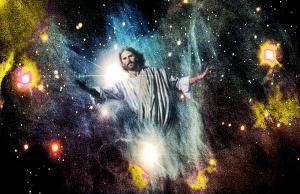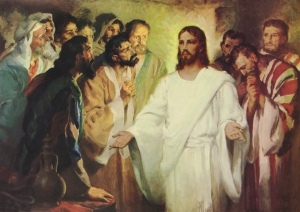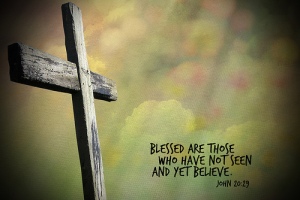“Great Commission”
Matthew 28:16-20
June 15, 2014, First Presbyterian Church of Jesup
Our scripture today is a familiar one, likely that you have heard in a variety of contexts: at baptisms, during confirmations, and before mission trips. Perhaps in reading this passage you feel energized to do the work of Christ, emboldened to go out into the world. Perhaps. But more than likely it makes you feel the way it makes most people feel: inadequate and perhaps even guilty. When we read familiar scripture we inevitably bring to it all the other ways we have experienced it, and since this one is so often used in contexts of people’s faithfulness, it can be convicting and perhaps frustrating to place this commissioning alongside our own lives. And so let’s dig in a bit deeper, and hopefully God will have a new word for each of us, emboldening us to take on this commission of discipleship in our own lives.
Our scripture tells us that the eleven disciples went to Galilee. All throughout the gospels we are told of the 12 disciples, their recruitment, their unity as brother’s in Christ, their perpetual need to have things explained to them by Jesus time and time again. But now, one disciple is markedly absent,  Judas, the one who betrayed with a kiss, the one who was lost. Starting this passage with this numeration of the eleven rather than the twelve, draws attention to the way that even Jesus, the one who shared the gospel and was the Gospel, had a disciple that chose a different path.
Judas, the one who betrayed with a kiss, the one who was lost. Starting this passage with this numeration of the eleven rather than the twelve, draws attention to the way that even Jesus, the one who shared the gospel and was the Gospel, had a disciple that chose a different path.
 Next our scripture tells us that when the disciples saw Jesus, they worshiped him, but some doubted. Notice that all worshiped, even though some doubted. Doubt and worship are not mutually exclusive expressions of relationship with God. Remember Jesus did not admonish his disciple Thomas when he doubted, but rather drew close and revealed his side for Thomas’ touch.
Next our scripture tells us that when the disciples saw Jesus, they worshiped him, but some doubted. Notice that all worshiped, even though some doubted. Doubt and worship are not mutually exclusive expressions of relationship with God. Remember Jesus did not admonish his disciple Thomas when he doubted, but rather drew close and revealed his side for Thomas’ touch.  Doubt is welcome, even and especially in worship. Our doubt gives room for a deeper understanding of God, it’s when we think we have God all figured out that we lose room for growth.
Doubt is welcome, even and especially in worship. Our doubt gives room for a deeper understanding of God, it’s when we think we have God all figured out that we lose room for growth.
Luther Seminary professor, David Lose writes, “I find it striking that in each gospel account, Jesus’ own disciples — that is, those who had followed him from the start and knew him best — do not at first believe the story of the resurrection … even when they see Jesus! Matthew reports that even now, at the close of his story, and just as the disciples are about to be commissioned as Jesus’ witnesses, they still have a hard time believing in Jesus even as they worship him. That’s who we are – people made up of a mixture of faith and doubt, hope and fear, successes and failures. And remembering that doubt is part and parcel of our life as a faith community is helpful to welcome people wherever they are on their faith journey. Moreover, if it feels daunting at times to believe the gospel, we can recall that we are not alone in feeling this way and that, ultimately, God will take responsibility for keeping God’s promises.”[1]
 Next in our scripture Jesus speaks out of his authority of heaven and earth, telling these disciples, to also go and make disciples of all nations. With Jesus speaking on behalf of both heaven and earth that means that our work is not simply relegated to one’s lifetime on earth, but also their eternal experience beyond anything we can know. This is a hopeful thing when we feel like our work as disciples has been ineffectual.
Next in our scripture Jesus speaks out of his authority of heaven and earth, telling these disciples, to also go and make disciples of all nations. With Jesus speaking on behalf of both heaven and earth that means that our work is not simply relegated to one’s lifetime on earth, but also their eternal experience beyond anything we can know. This is a hopeful thing when we feel like our work as disciples has been ineffectual.
 As C.S. Lewis put it: “It is not your business to succeed, but to do right; when you have done so, the rest lies with God.”
As C.S. Lewis put it: “It is not your business to succeed, but to do right; when you have done so, the rest lies with God.”
This business of following God in seeking to right can be disheartening. We live in results oriented culture and so we seek immediate and measurable progress. We very well might not be witness to the transformation that God seeks to take place through us. We are called to reveal God’s love, to offer the joy of the Gospel, but we might not see a response. Trusting that God is responsible for God’s promises, we can have confidence that our work is not in vain.
 It is not lost on me that this Great Commissioning passage came up in the lectionary on the very same week that I have offered my resignation as pastor of this church. It has been a quite a difficult decision to do so. It is hard not to feel like I am letting you down, and letting God down in the work that I have been called to. I received council from wise pastors who reminded me that though I am called to minister to specific churches at specific times, my larger vocation is a call to serve God, and that never changes. And so part of my task of ministry is one of discernment, determining whether I am called to stay or to go, whether a particular church at a particular time requires my gifts or the gifts of another minister. And while it’s certainly not an easy decision, I do believe it is the right one. Sometimes the commissioning for ministry looks like staying put, sometimes it looks like going out, either way, God uses us to be the Church.
It is not lost on me that this Great Commissioning passage came up in the lectionary on the very same week that I have offered my resignation as pastor of this church. It has been a quite a difficult decision to do so. It is hard not to feel like I am letting you down, and letting God down in the work that I have been called to. I received council from wise pastors who reminded me that though I am called to minister to specific churches at specific times, my larger vocation is a call to serve God, and that never changes. And so part of my task of ministry is one of discernment, determining whether I am called to stay or to go, whether a particular church at a particular time requires my gifts or the gifts of another minister. And while it’s certainly not an easy decision, I do believe it is the right one. Sometimes the commissioning for ministry looks like staying put, sometimes it looks like going out, either way, God uses us to be the Church.
 In our scripture today, Christ affirms that we are called to make disciples through baptism, in the name of the Father, Son, and Holy Spirit, concluding with the promise that Jesus is with us always, even to the end of the age. The “go therefore” of this passage is possible for us and for the disciples because we are not on own own or left to our own devices.
In our scripture today, Christ affirms that we are called to make disciples through baptism, in the name of the Father, Son, and Holy Spirit, concluding with the promise that Jesus is with us always, even to the end of the age. The “go therefore” of this passage is possible for us and for the disciples because we are not on own own or left to our own devices.
 The Trinitarian formula of this passage, “Father, Son, and Holy Spirit,” is particularly highlighted on this Sunday, as we acknowledge today as “Trinity Sunday.” The trinity provides a framework whereby we may better understand our relational God, through the various way we relate to God. The Holy Spirit is the aspect of God that remains with us, enlivens us with the energy and joy of service. The Son, Jesus Christ, is the aspect of God that shows us how to live through example, through Christ’s life and ministry on earth. And God the Father, is the aspect of God that has to do with creation and formation. Through all these ways we are able to know and relate to God.
The Trinitarian formula of this passage, “Father, Son, and Holy Spirit,” is particularly highlighted on this Sunday, as we acknowledge today as “Trinity Sunday.” The trinity provides a framework whereby we may better understand our relational God, through the various way we relate to God. The Holy Spirit is the aspect of God that remains with us, enlivens us with the energy and joy of service. The Son, Jesus Christ, is the aspect of God that shows us how to live through example, through Christ’s life and ministry on earth. And God the Father, is the aspect of God that has to do with creation and formation. Through all these ways we are able to know and relate to God. Greek scholars will be quick to point out that just as God remains with us, our call is not just for us alone, but for all of God’s disciples together. In the Greek the verbs of this commission are in the plural. This is a commission not just for one person, but for the whole community. We need each other in order to fulfill God’s call on our lives and on our world.
Greek scholars will be quick to point out that just as God remains with us, our call is not just for us alone, but for all of God’s disciples together. In the Greek the verbs of this commission are in the plural. This is a commission not just for one person, but for the whole community. We need each other in order to fulfill God’s call on our lives and on our world.
We are called to worship even as we doubt, to baptize on earth even as we struggle with what is to come in heaven. We are called to do all of the things in “the name of the Father and of the Son and of the Holy Spirit.”[2] May we be emboldened to do so. Amen.
[1] http://www.workingpreacher.org/craft.aspx?post=3254
[2] Matthew 28:19













